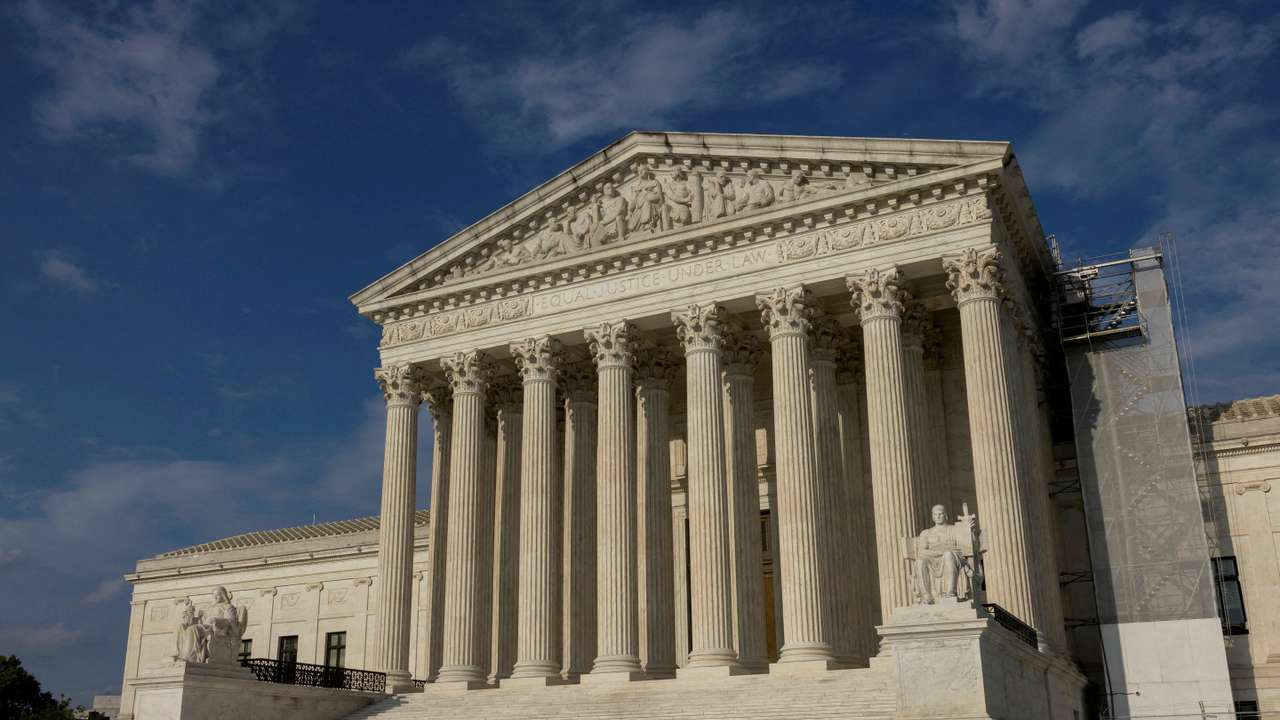US Supreme Court to hear challenge to Colorado ban on gay 'conversion therapy'

By John Kruzel
The U.S. Supreme Court agreed on Monday to hear a Christian therapist's challenge on free speech grounds to a Democratic-backed Colorado law banning "conversion therapy" intended to change a minor's sexual orientation or gender identity.
The justices took up an appeal by licensed counselor Kaley Chiles of a lower court's decision rejecting her claim that the 2019 statute unlawfully censors her communications with clients in violation of the U.S. Constitution's First Amendment protections against government abridgment of speech. The state has said it is regulating professional conduct, not speech.
The justices are expected to hear the case during their next term, which begins in October.
Colorado is among more than two dozen states and the District of Columbia that restrict or prohibit conversion therapy for minors.
Chiles is a Colorado-based therapist and practicing Christian who "believes that people flourish when they live consistently with God's design, including their biological sex," according to court papers.
Colorado's law prohibits licensed mental healthcare providers from engaging in "conversion therapy" with patients younger than age 18, with violations punishable by disciplinary action before a state licensing board. The law defines conversion therapy as efforts "to change an individual's sexual orientation or gender identity, including efforts to change behaviors or gender expressions or to eliminate or reduce sexual or romantic attraction or feelings toward individuals of the same sex."
The office of Colorado Attorney General Philip Weiser said in response to the Supreme Court's action on Monday that states have long regulated medical practices to protect patients from harmful professional conduct.
"Colorado's law protecting young people from unscientific and cruel gay conversion therapy practices is humane, smart and appropriate, and we're committed to defending it at the Supreme Court," a spokesperson said.
Chiles is represented by the Alliance Defending Freedom, a conservative legal group that has challenged other LGBT protections.
Kristen Waggoner, the group's CEO, president and general counsel, said, "The government has no business censoring private conversations between clients and counselors, nor should a counselor be used as a tool to impose the government's biased views on her clients."
'A TORTUOUS PRACTICE'
Democratic Colorado Governor Jared Polis, the nation's first openly gay man to be elected as a state governor, signed the bill into law. Polis has called conversion therapy "a tortuous practice that has long been widely discredited by medical and mental health professionals."
Chiles sued Colorado officials in 2022 to block the conversion therapy ban, arguing among other things that the law unlawfully discriminates against her speech "on the basis of the content of the message she offers."
U.S. District Judge Charlotte Sweeney, an appointee of Democratic former President Joe Biden, in 2022 denied the request by Chiles to block enforcement of the law. Sweeney ruled that the ban was a permissible regulation of professional conduct, not speech. The judge also found that the record showed "that conversion therapy is ineffective and harms minors who identify as gay, lesbian, bisexual, transgender or gender nonconforming."
The Denver-based 10th U.S. Circuit Court of Appeals upheld the judge's ruling, prompting Chiles to appeal to the Supreme Court.
The fight over conversion therapy bans represents yet another legal battle involving the intersection of the rights of LGBT people and religious people.
In several high-profile rulings in recent years, the Supreme Court, which has a 6-3 conservative majority, has taken an expansive view of religious interests at the expense of protections for LGBT people.
The Supreme Court in 2023 declined to hear a similar challenge brought by a Christian therapist to Washington state's conversion therapy ban. Conservative Justices Clarence Thomas, Samuel Alito and Brett Kavanaugh dissented from the court's decision not to take up that case.
The court is considering some other cases during its current term involving LGBT and religious rights, with rulings expected by the end of June.
During Dec. 4 arguments, the conservative justices signaled their willingness to uphold a Republican-backed ban in Tennessee on gender-affirming medical care for transgender minors.
The court during arguments on Feb. 26 appeared to lean toward making it easier for people from "majority backgrounds," such as white or straight people, to pursue workplace discrimination claims in a case involving an Ohio woman who claims she was denied a promotion and demoted because she is heterosexual.
The court also has taken up appeals in cases involving a bid by religious parents to keep their children out of classes in a Maryland public school district when LGBT storybooks are read and a bid by an arm of a Catholic diocese in Wisconsin for a religious exemption from the state's unemployment insurance tax.
This article was produced by Reuters news agency. It has not been edited by Global South World.